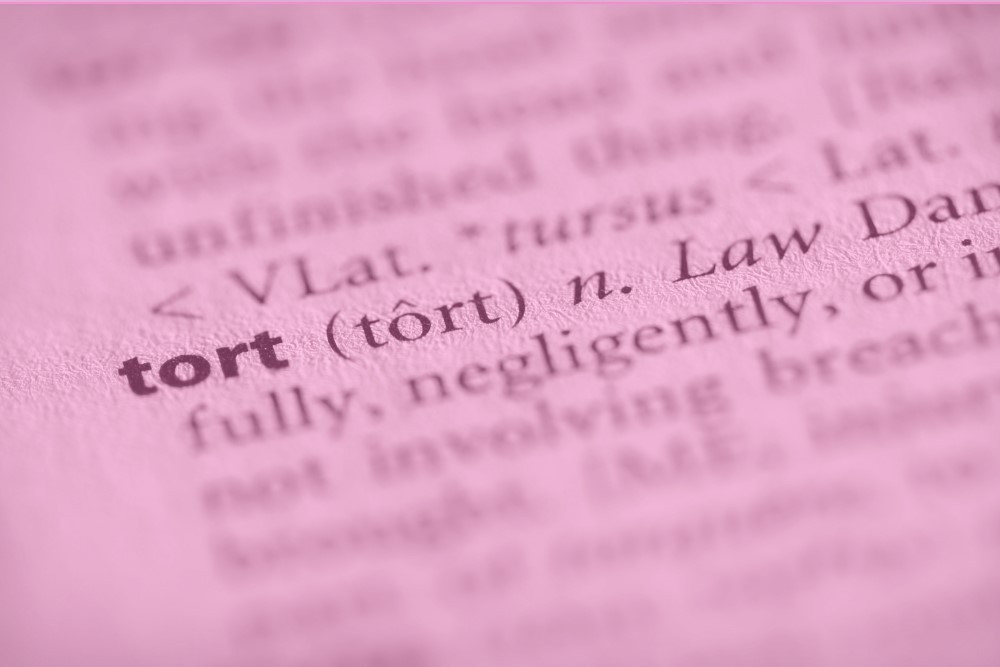A tort is a civil wrong that is done to one party by another and that causes the victim to suffer harm or loss. The claimant in a tort matter may sue for damages or other forms of relief. Many torts are created under the common law, but there are also statutory wrongs that amount to torts.
A tort may be committed by an individual or by a public authority or corporate entity. An act or omission that gives rise to a tort may also amount to a criminal offence. Criminal prosecutions are initiated by the state, while actions in tort are initiated by a private individual, public authority or company that is seeking compensation for the injury, loss or harm they suffered as a result of the tort, or for an order to prevent the tort from continuing or from being repeated.
Disputes arising under contracts are not torts.
Common torts
Some common torts are the following:
- Negligence, where one party suffers harm because of another’s party’s failure to take proper care under circumstances where they had a duty to do so
- Defamation, where a person’s reputation is damaged by the publication of untruthful statements by another party
- False imprisonment, where a person is deprived of their liberty without lawful justification
Damages
Many plaintiffs in tort matters seek damages. Damages is a form of compensation that is awarded to a wronged party to replace the value of rights or property that have been lost or to cover expenses or recognise pain and suffering resulting from an injury.
A plaintiff must show that they have suffered an injury or a loss in order to be awarded damages. This will require evidence such as medical records, financial statements, and other material that demonstrates the consequences of the tort.
There are a number of different bases on which damages can be awarded depending on the type of loss or injury, the conduct of the parties and the seriousness of the tort.
Injury
An injury can be physical or psychological. It can also be the aggravation of a pre-existing injury or condition. To be awarded damaged for a psychological injury, the plaintiff must adduce evidence that it is a recognised psychiatric or psychological condition; being ‘upset’ or ‘feeling down’ will not suffice.
Loss
A loss may be any detriment, damage, or suffering that results from a tort. This may be the inability to work due to an injury in a personal injury case. It may be the loss of professional opportunities resulting from harm to a person’s reputation in a defamation case.
Two forms of tort liability
A party may be found to be liable for a tort in two different ways.
Personal liability
Firstly, a party may be personally responsible for the tort because they personally did or omitted to do something. For example, a person may have driven negligently.
Vicarious liability
Secondly, a party may be vicariously liable for a tort that it did not personally commit. Employers are vicariously liable for the torts of their employees where these are committed during the ‘scope and course’ of their employment. Principals are also vicariously liable for the torts of their agents.
A court will assess whether vicarious liability exists by considering the following:
- The degree of control the employer or principal had over the individual
- Whether the worker was ‘part and parcel’ of the organisation
- Whether there was a sufficient relationship between the worker and the employer for them to be considered an employee.
Injunctions
A plaintiff may seek an injunction to stop the tort from continuing or recurring. An injunction is a court order that restrains a party from doing something or compels them to do something.
Limitation period
The limitation period that applies in tort matters is six years from the date that the cause of action arose.
If you require legal advice or representation in any legal matter, please contact Taylor Rose.




